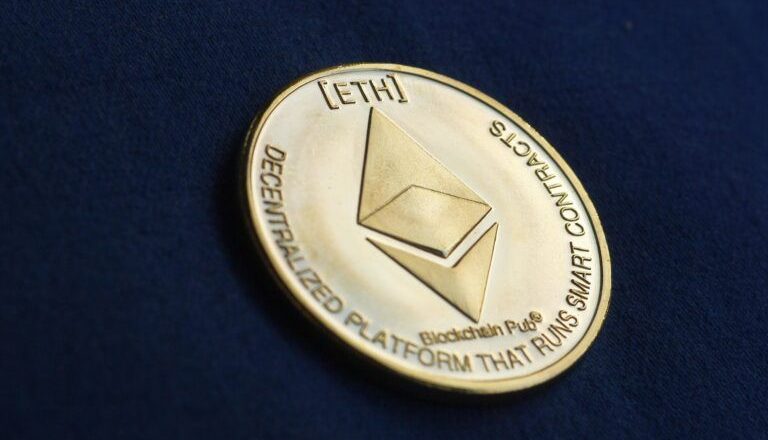Binance Research on Ethereum Layer 2 Scaling Solution Arbitrum
On Thursday (October 13), Binance Research provided an update on Ethereum layer 2 (L2) scaling solution Arbitrum.
What Is Arbitrum?
According to Offchain Labs, the startup developing this popular Ethereum L2 scaling solution, Arbitrum is an “optimistic rollup” that offers the following the benefits:
- “Trustless security: security rooted in Ethereum, with any one party able to ensure correct Layer 2 results
- Compatibility with Ethereum: able to run unmodified EVM contracts and unmodified Ethereum transactions
- Scalability: moving contracts’ computation and storage off of the main Ethereum chain, allowing much higher throughput
- Minimum cost: designed and engineered to minimize the L1 gas footprint of the system, minimizing per-transaction cost.“
Arbitrum’s developers’ documentation goes on to explain what the term “optimistic rollup” means:
“Arbitrum is a rollup, which means that the inputs to the chain — the messages that are put into the inbox — are all recorded on the Ethereum chain as calldata. Because of this, everyone has the information they would need to determine the current correct state of the chain — they have the full history of the inbox, and the results are uniquely determined by the inbox history, so they can reconstruct the state of the chain based only on public information, if needed.
“This also allows anyone to be a full participant in the Arbitrum protocol, to run an Arbitrum node or participate as a validator. Nothing about the history or state of the chain is a secret.
“Arbitrum is optimistic, which means that Arbitrum advances the state of its chain by letting any party (a “validator”) post a rollup block that that party claims is correct, and then giving everyone else a chance to challenge that claim. If the challenge period (roughly a week) passes and nobody has challenged the claimed rollup block, Arbitrum confirms the rollup block as correct. If somebody challenges the claim during the challenge period, then Arbitrum uses an efficient dispute resolution protocol (detailed below) to identify which party is lying. The liar will forfeit a deposit, and the truth-teller will take part of that deposit as a reward for their efforts (some of the deposit is burned, guaranteeing that the liar is punished even if there’s some collusion going on).
“Because a party who tries to cheat will lose a deposit, attempts to cheat should be very rare, and the normal case will be a single party posting a correct rollup block, and nobody challenging it.“
Offchain Labs Acquires Prysmatic Labs
On Wednesday (October 12), Offchain Labs announced “the acquisition of Prysmatic Labs, one of the leading software teams behind Ethereum proof-of-stake, which was recently implemented into the Ethereum network during The Merge.” The press release went on to say that “with Arbitrum One being the most popular and technically advanced Ethereum L2 blockchain available, this acquisition is the latest step for the Offchain Labs team in its mission to develop the most sustainable Web 3 ecosystem.”
Steven Goldfeder, CEO of Offchain Labs, had this to say about this acquisition:
“Prysmatic Labs possesses an incredibly talented team of engineers, and their dedication to the Ethereum community shows via their best-in-class product that is used broadly in the Ethereum ecosystem. We are looking forward to the integration of the Prysmatic Labs team as we work together to scale Ethereum.“
What Binance Research Says About Arbitrum
Yesterday, Binance Research said this about Arbitrum:
“Arbitrum is an L2 solution designed to boost the speed and scalability of Ethereum smart contracts while adding additional privacy features. Arbitrum further allows developers to run unmodified EVM contracts and transactions without compromising on layer 1 security… Around a month ago, Arbitrum updated its platform to ‘Nitro’ – introducing changes to the platform that bring along long-term improvements…
“With the introduction of Nitro, transactions are now handled in two stages. In the first stage, Nitro puts transactions into a sequence in which they will be processed. It then publishes the sequence and applies a deterministic state transition function to each transaction…
“Just looking at transactions on Arbitrum, we can observe a positive trend since the beginning of the year. We saw the Arbitrum Odyssey as a key event, driving further adoption, but expect that long-term growth will need to come from further integration of centralized exchanges… While DeFi TVL has been initially bigger on Arbitrum, TVL is now almost equally split between Arbitrum and Optimism. As such, despite recent developments to Arbitrum, we have not seen substantial market share gains. However Arbitrum has more TVL when considering token balances…
“Not only did OpenSea announce its support for Arbitrum and its NFT ecosystem, but the combination of new infrastructure, incoming users with new NFTs from Odyssey, and a token launch created a perfect storm for the continued growth of Arbitrum… We can conclude that while being in constant competition with Optimism and other scaling solutions, Arbitrum’s ecosystem has still been on a consistent rise throughout the year… While centralization is still a key risk factor that we want to point out – Arbitrum is not alone in this, as most L2s are, in one way or another, still mainly exposed to some form of centralization risk.“
Image Credit
Featured Image via Pixabay
Source: Read Full Article

